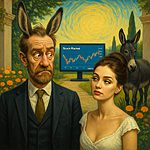
How Can Stress Kill You? Unveiling the Deadly Truth
Updated June 28, 2024
Fear increases stress, and stress weakens the immune system. The extensive data presented in this essay indicates that stress can be deadly, especially to the elderly, who often have pre-existing disorders. The additional anxiety places an extra load on their already weakened immune systems. So, can stress kill you? A host of data indicates that it can in the long run.
During acute stress lasting a few minutes, specific cells are mobilized into the bloodstream, potentially preparing the body for injury or infection during “fight or flight” [1]. Acute stress also increases blood levels of pro-inflammatory cytokines [2]. Chronic stress, lasting from days to years, is associated with higher levels of pro-inflammatory cytokines but potentially different health consequences [3]. https://bit.ly/2U8Kjdi
Inflammation is a necessary short-term response for eliminating pathogens and initiating healing. However, systemic inflammation represents dysregulation of the immune system and increases the risk for chronic diseases, including atherosclerosis and frailty [4]. Another consequence of chronic stress is the activation of latent viruses. Frequent activation can cause wear and tear on the immune system [5].
The Lethal Toll of Stress: Weakening Your Immune System
In addition to increasing inflammation, stress decreases the body’s lymphocytes — the white blood cells that help fight off infection. The lower your lymphocyte level, the more at risk you are for viruses, including the common cold and cold sores. High-stress levels can also cause depression and anxiety, again leading to higher levels of inflammation. Long-term, sustained, high levels of inflammation point to an overworked, over-tired immune system that can’t adequately protect you [6]. https://cle.clinic/3bct0xx
Ongoing stress makes us susceptible to illness and disease because the brain sends defence signals to the endocrine system, releasing an array of hormones that prepare us for emergencies and severely depress our immunity. Some experts claim that stress is responsible for as much as 90% of all illnesses and diseases, including cancer and heart disease [7]. https://bit.ly/2U9yNOw
Can Stress Kill You? Assessing Its Impact on Your Body
In recent decades, it has become well-accepted that psychological stress can adversely affect many aspects of immune function [8]. However, the full health impact of stress may not be fully revealed until the effects of ageing are more widely appreciated. Chronic stress may speed up the rate of normal age-related immune dysregulation [9]. Moreover, age-related disease and impairment may augment the effects of stress or result in more significant clinical impairment for older individuals [10].
Ageing is associated with a natural decline in immune functioning, known as immunosenescence, which is observed in many facets of innate and adaptive immunity. For example, older individuals have a poorer natural killer cell (NK) response to stimulatory cytokines than younger individuals [11]. Aging is also associated with impaired activation and proliferation of T- and B-lymphocytes [12]. Furthermore, the B-lymphocytes of elderly individuals produce fewer antibodies than younger individuals [13]. https://bit.ly/2U9yNOw
In addition, increased production of specific inflammatory mediators is observed during ageing [14]. These immunological changes make older individuals more susceptible to various age-related diseases. However, immunosenescence appears to place older individuals at greater risk when combined with accumulating chronic illnesses, repeated infections, or other external factors [15]. Chronic stress may be one of the factors leaving elderly individuals more vulnerable to age-related diseases [16, 17]. https://bit.ly/33y4pRg
Stress’s Link to Infections: Pioneering Research
In the early 1980s, psychologist Janice Kiecolt-Glaser, PhD, and immunologist Ronald Glaser, PhD, of the Ohio State University College of Medicine, were intrigued by animal studies that linked stress and infection. From 1982 through 1992, these pioneer researchers studied medical students. They found that the students’ immunity decreased yearly under the simple stress of the three-day exam period. Test takers had fewer natural killer cells fighting tumours and viral infections. They almost stopped producing immunity-boosting gamma interferon, and infection-fighting T-cells responded weakly to test-tube stimulation [18].
Those findings opened the floodgates of research. By 2004, Suzanne Segerstrom, PhD, of the University of Kentucky, and Gregory Miller, PhD, of the University of British Columbia, had nearly 300 studies on stress and health to review. Their meta-analysis discerned intriguing patterns. Lab studies that stressed people for a few minutes found a burst of one type of “first responder” activity mixed with other signs of weakening. APA.org, All aspects of immunity went downhill for the stress of any significant duration – from a few days to a few months or years, as happens in real life. Thus, long-term or chronic stress, through too much wear and tear, can ravage the immune system [19].
In addition, increased production of certain inflammatory mediators is observed during ageing [4]. These immunological changes make older individuals more susceptible to various age-related diseases. However, immunosenescence appears to place older individuals at greater risk when combined with accumulating chronic illnesses, repeated infections, or other external factors [5]. Chronic stress may be one of the factors leaving elderly individuals more vulnerable to age-related diseases [6,7]. https://bit.ly/33y4pRg
Stress Weakens Immunity: Effects on Unhealthy Individuals
Suppose stress suppresses the immune systems of healthy individuals. In that case, the effects on the elderly, who tend to panic more and many of whom have some underlying condition (especially if they are on a modern-day diet), should be even more pronounced. They could also be deadly if they deal with a more potent virus or bacteria than usual.
The analysis of multiple studies also indicated that older individuals or those dealing with health issues are more susceptible to stress-induced immune changes. For instance, a 2002 research conducted by Lyanne McGuire, PhD, from John Hopkins School of Medicine, alongside Kiecolt-Glaser and Glaser, found that even persistent, mild depression, which doesn’t meet clinical thresholds, can weaken the immune system in older individuals. The study involved participants in their early 70s who were caring for someone with Alzheimer’s disease [20]. (Hawkley and Cacioppo, 2004; Kiecolt-Glaser and Glaser, 2001). https://bit.ly/2QyZqdw
Among those experiencing chronic mild depression, their lymphocyte-T cell responses to two mitogens, used to simulate the body’s reaction to viruses and bacteria, were weakened. This weakened immune response persisted after 18 months and declined with advancing age. In alignment with the 2004 meta-analysis, it became evident that the crucial factor affecting the immune system was the duration of depression, not its severity. For older caregivers, the combination of their depression and age posed a double challenge to their immunity [21]. Pnas.org
Rising Coronavirus Hysteria Amplifies Stress Levels
The current coronavirus pandemic has increased stress levels among the population, particularly the elderly. Instead of trying to calm the population, governments in the West seem to be doing their best to stress out older individuals who are already facing other stressful issues, such as pensions that don’t cover the cost of living or inadequate medical help.
The researchers noted that lack of social support has been reported in the research as a risk factor for depression, an insight amplified in a 2005 study of college students. Health psychologists Sarah Pressman, PhD, Sheldon Cohen, PhD, and fellow researchers at Carnegie Mellon University’s Laboratory for the Study of Stress, Immunity and Disease found that social isolation and feelings of loneliness each independently weakened first-year students’ immunity [22]. https://bit.ly/2Wzv2Ui
Reconsidering Social Distancing in Times of Stress: Is It the Best Approach?
To add to the stress, experts have coined the term “social distancing,” confusing many. They have now decided to use the term “physical distancing” instead. According to Dr. Maria Van Kerkhove of the World Health Organization, the move to use “physical distancing” comes from a desire to highlight “keeping the physical distance from people so that we can prevent the virus from transferring to one another” [23]. https://bit.ly/3bdBzIg
However, inventing these new phrases may add more stress to an already stressed-out group, particularly the elderly. A more straightforward approach could be to advise people to temporarily avoid close contact with older relatives, as they are the most vulnerable, and emphasize that this is a temporary measure. The most susceptible become even more vulnerable as their immune systems are further weakened, and stress has been shown to reduce immunity.
Conclusion
The extensive data indicates that stress can have deadly consequences, particularly for the elderly, who often have pre-existing health conditions. Stress weakens the immune system, making individuals more susceptible to illnesses and infections. Chronic stress is associated with higher levels of pro-inflammatory cytokines, activation of latent viruses, and a decrease in lymphocytes, all of which contribute to a compromised immune system. The effects of stress on immunity are more pronounced in older individuals and those with underlying health issues. The current situation, with rising coronavirus hysteria and the promotion of social distancing, may inadvertently amplify stress levels among the elderly, further weakening their immune systems and increasing their vulnerability.
Views of renowned doctors:
1. Dr. Hans Selye, known as the “Father of Stress Research,” stated, “Every stress leaves an indelible scar, and the organism pays for its survival after a stressful situation by becoming a little older.”
2. Dr. Robert Sapolsky, a neuroendocrinologist at Stanford University, noted, “Stress, in addition to being itself, was also the cause of itself, and the result of itself.”
3. Dr. Bruce McEwen, a neuroscientist at Rockefeller University, said, “Stress is a double-edged sword. In the short term, it can help us cope with challenging situations, but when it becomes chronic, it can devastate our health, including our immune function.”
In conclusion, the data and expert opinions underscore the critical importance of managing stress, particularly among the elderly and those with pre-existing health conditions, to maintain a robust immune system and overall well-being. By understanding how stress affects our health and taking steps to reduce chronic stress, we can improve our resilience and protect ourselves from the potentially deadly consequences of prolonged stress exposure.
Interesting Reads
List at Least One Factor That Contributed to the Stock Market Crash and the Great Depression














